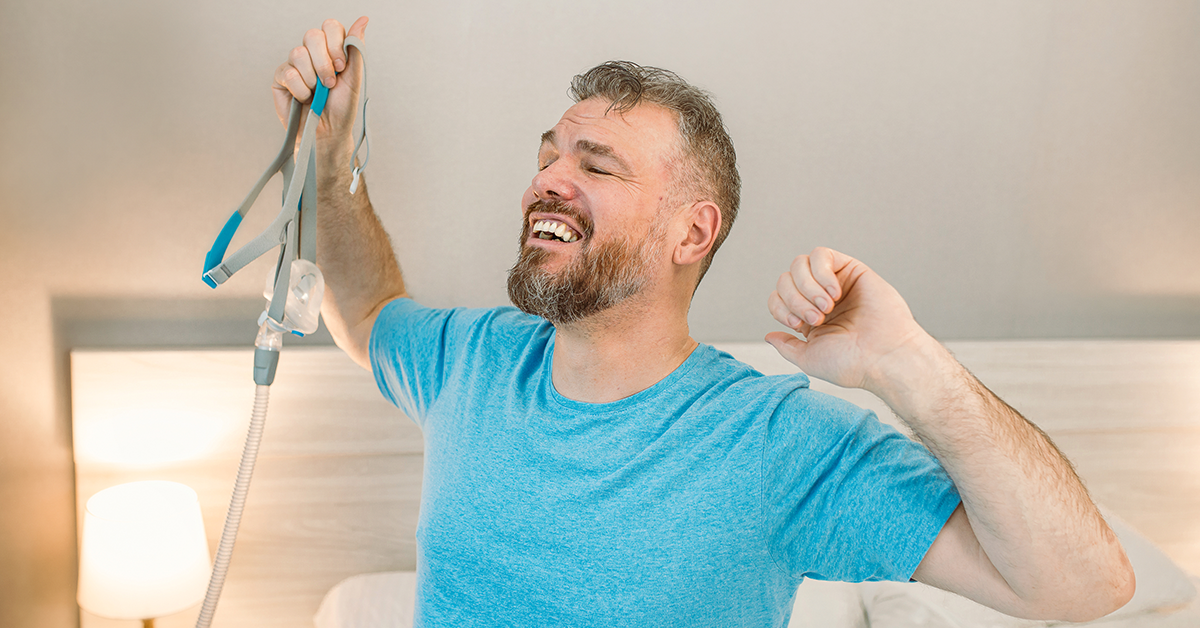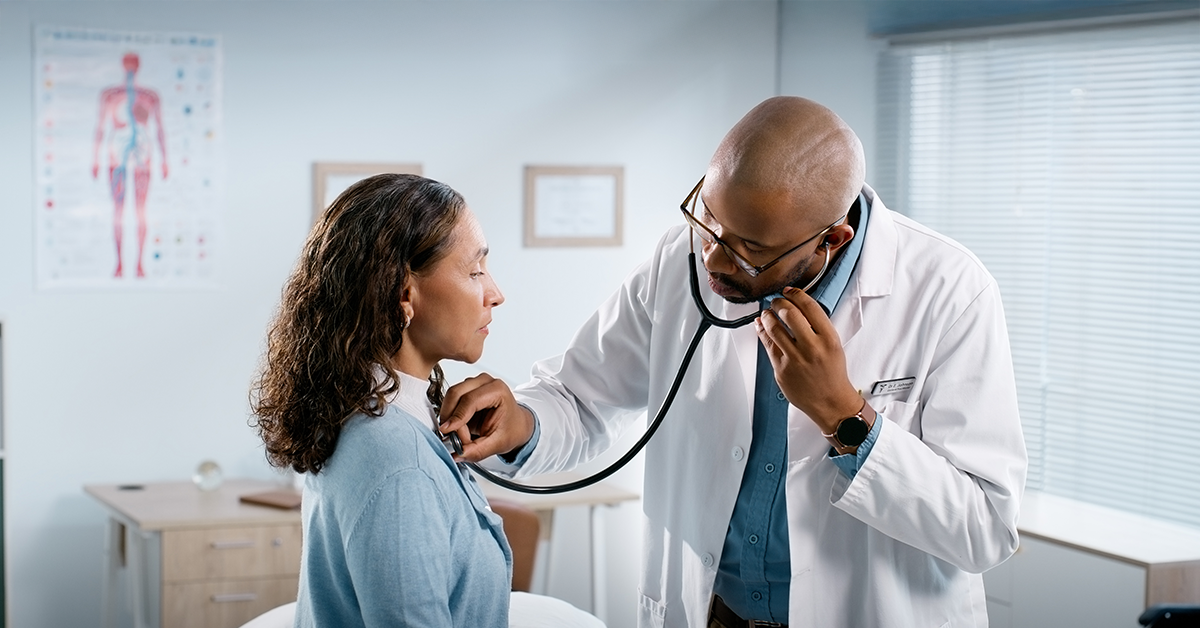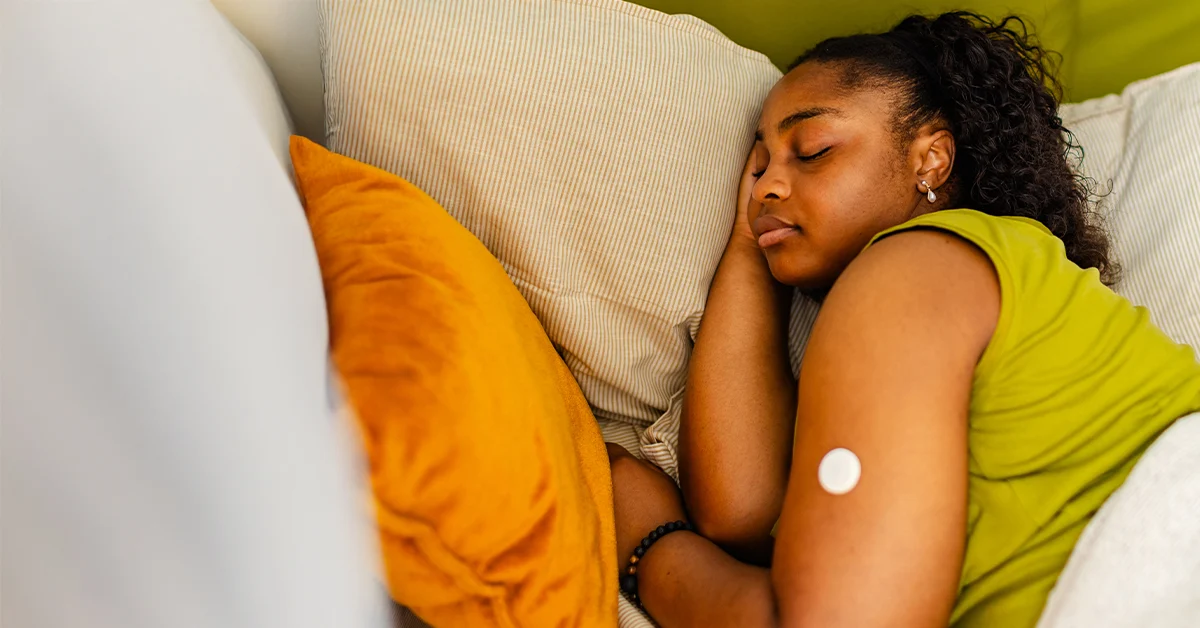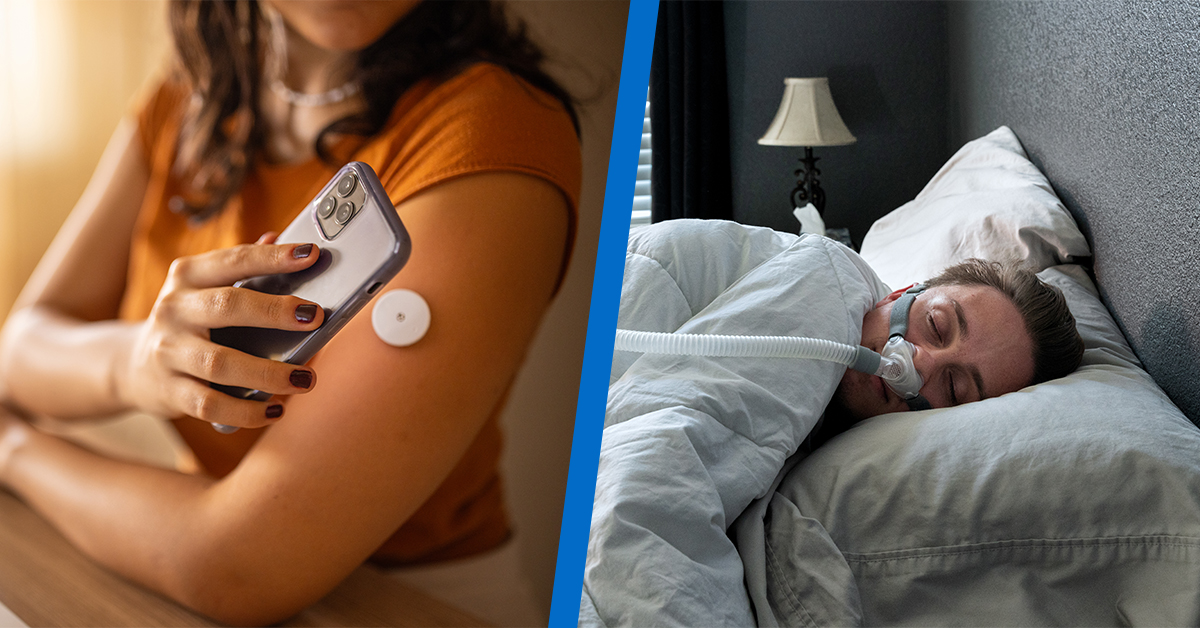This Serious Sleep Disorder Can Be Even More Serious When You’re Expecting
Sleep is essential for everyone, but especially for pregnant mothers and their babies. Sleep plays a critical role in improving your mood and memory as well as your ability to learn and make decisions, which are all needed to raise a happy, healthy newborn.
However, women often find it difficult to get the quantity and quality of sleep they need when they are pregnant. Multiple late-night trips to the bathroom, general discomfort, and overall worry about the baby’s birth and health can cause sleepless nights.
Or it may be because of a serious health condition known as sleep apnea.
Researchers estimate sleep apnea may affect as many as 26% of women who are expecting—many of whom don’t even know they have it.
Apria Healthcare VP of Sleep Business Robert Miller says, “If you are pregnant and you aren’t sleeping well, it’s important to understand what sleep apnea is, how it could affect you and your baby, and how to treat it.”
The Facts About Sleep Apnea
Sleep apnea happens when your airway becomes obstructed, disrupting your sleep. This reduces the flow of oxygen to vital organs and prevents you from breathing normally. The result: your body responds by forcing you to wake up to restart the breathing process.
This process can occur hundreds of times throughout the night.
Symptoms of Sleep Apnea
The most common symptoms include:
- Chronic snoring
- Excessive daytime sleepiness (also called hypersomnia)
- Frequent need to urinate during the night (called nocturia)
- Insomnia
- Gasping for air while sleeping
- Depression, irritability, or mood swings
- Memory loss
- Night sweats, morning headaches, and heartburn
How Pregnancy Causes Sleep Apnea
The following contribute to the development of sleep apnea during pregnancy:
- Fluctuating hormone levels cause swelling of the mucus membranes in your nose and relax airways, resulting in more congestion and snoring
- Weight gain and an expanding uterus put pressure on your lungs, making breathing more difficult
- Sleeping on your back due to your “baby bump” increases the risk of sleep apnea
- Back pain often experienced by expectant mothers may make it hard to find a comfortable sleep position
- In the third trimester, many pregnant women experience vivid, sometimes disturbing, dreams, which may cause sleeplessness
Risk Factors for Sleep Apnea
A variety of factors may put women who are pregnant at a higher risk for sleep apnea:
- High blood pressure
- Gestational diabetes
- Deviated septum or a wider neck, which compromises breathing
- Being overweight
- Family history of sleep apnea
- Smoking
- Nasal congestion
How Sleep Apnea Affects You
If left untreated, sleep apnea can lead to other serious health conditions:
- Heart disease
- Stroke
- Diabetes
- High blood pressure
- Depression
- Weakened immune system
Clinical studies also show that in women who are pregnant, sleep apnea can result in:
- Gestational diabetes
- Cesarean section (C-section)
- Premature delivery
- Preeclampsia, a dangerous pregnancy complication marked by high blood pressure
- Prolonged labor
- Obesity hypoventilation syndrome, a breathing disorder that causes too much carbon dioxide and too little oxygen in your blood
How Sleep Apnea Affects Your Baby
Sleep apnea during pregnancy has been linked with:
- Impeded oxygen flow to the fetus, which can cause a baby’s heart rate to drop, acidosis (too much acid in the bloodstream), and fetal growth restriction (a condition where a baby doesn't grow to normal weight during pregnancy)
- Preterm birth
- Reduction of growth hormone, leading to growth problems and developmental issues
Research has also found a correlation between children born to mothers with sleep apnea and lower social development scores.
How Is Sleep Apnea Diagnosed?
You may be prescribed a sleep study (polysomnogram or PSG) if your doctor suspects you have sleep apnea. This can be performed in a sleep clinic over the course of a night. It collects data about such body functions as heart rate, breathing patterns, brain waves, snoring activity, and eye movements.
Your doctor may also prescribe a home sleep study, which is done in the comfort of your home.
Both sleep studies are noninvasive and won’t affect your pregnancy.
Treatments for Sleep Apnea
The “gold standard” for treating sleep apnea is called continuous positive airway pressure (CPAP). Today, more than 8 million Americans use CPAP to treat their sleep apnea.
Research shows that CPAP therapy is both safe and effective when used before, during, and after pregnancy.
CPAP involves wearing a mask over your nose or mouth while you sleep. The mask is connected to a machine that delivers a constant flow of air to keep your airways open so you can breathe—and sleep—normally.
For less severe cases, some people may benefit from wearing a special mouthpiece that positions the lower jaw slightly forward and opens the back of your throat for easier breathing.
Here’s to a Restful Pregnancy and Successful Delivery!
Studies suggest that sleep apnea may improve or resolve after you give birth to your child. If you are experiencing the symptoms of sleep apnea, it’s important that you speak with your doctor. Apria’s Robert Miller adds, “The good news is that timely and appropriate sleep apnea treatment greatly increases your chances of having a healthy, happy baby.”
References
1. Pacheco, D. (Updated 2022, April 15). Pregnancy and Sleep. Sleep Foundation.
https://www.sleepfoundation.org/pregnancy.
2. Marie, S. (2022, June 15). Obstructive Sleep Apnea During Pregnancy: What’s the Connection? Healthline. https://www.healthline.com/health/sleep-apnea/sleep-apnea-pregnancy.
3. Peters, B. (Updated 2022, October 18). Obstructive Sleep Apnea in Pregnancy. Verywell Health. https://www.verywellhealth.com/sleep-apnea-and-pregnancy-3014773.
4. Horsager-Boehrer, R. (2021, February 2). Feeling tired during pregnancy? You might have sleep apnea. UT Southwestern Medical Center.
https://utswmed.org/medblog/sleep-apnea-pregnancy/#:~:text=Sleep%20apnea%20during%20pregnancy%20can,gestational%20diabetes%2C%20or%20premature%20delivery
5. Fink, JLW. (Updated 2017, March 2). Sleep Apnea During Pregnancy. The Bump. https://www.thebump.com/a/sleep-apnea-during-pregnancy.
LEGAL DISCLAIMER: Material in this newsletter is provided for general health education and informational purposes and to provide references to other resources only; it may not apply to you as an individual. While Apria Healthcare believes that the information provided through this communication is accurate and reliable, Apria Healthcare cannot and does not make any such guarantee. It is not intended to be a replacement for professional medical advice, evaluation, diagnosis, services or treatment (collectively, “medical treatment”). Please see your healthcare provider for medical treatment related to you and your specific health condition(s). Never disregard medical advice or delay seeking medical care because of something you have read on or accessed through this website. Reading this newsletter should not be construed to mean that you have a healthcare provider/patient relationship.

.png)



